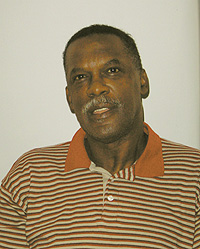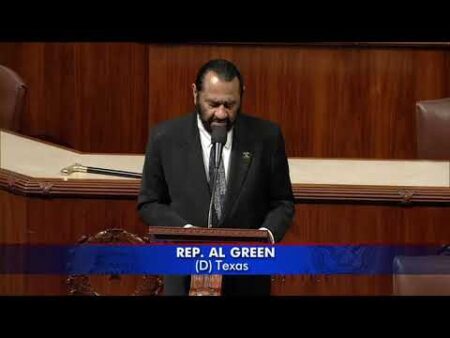An Interview with Kenneth Mapp
 |
| Retired teacher and coach Kenneth Mapp. |
by Clare Hubbard
As a result of the local and national changes in school curriculum and education assessment protocols, many teachers and administrators are discovering they have less room to define their own teaching methods and are struggling to fulfill new assessment requirements outlined by developing programs.
We recently sat down with retired teacher and coach Kenneth Mapp, who has worked in the Asheville city school system for 17 years. Mapp has experienced firsthand the changes in the ways our students are taught, guided, tested, and punished. He has much to say about some aspects of education that have stayed the same through the tests of time.
UNO:
In addition to being a teacher and coach, you have directed
after-school programs and served as the In School Suspension (ISS)
coordinator at Asheville High. How have these positions affected each
other? In other words, what teaching/guiding methods did you utilize in
ISS that would have worked just as well in the classroom or on the
basketball court?
KM: Teaching is
coaching and coaching is teaching, whether I am serving as ISS
coordinator, basketball coach or teacher. If you are a good classroom
teacher who believes in employing discipline and structure in your
methodology, it becomes easier to transfer these aspects to the court.
UNO: Considering
your experience as ISS coordinator, do you see any disparities in the
ways in which “problem” students are dealt with?
KM: Students
were in ISS for one of two reasons: they were assigned by an
administrator for violation of school policies, or they were sent to
ISS by their teacher for various infractions. The number of African
American students always exceeded the number of white students or those
of other ethnicities. Some students, no matter their ethnic background,
deserved to be in ISS, but there was always that percentage of students
who were sent to ISS because of the teacher’s inability or
unwillingness to deal with them in the classroom. Some of the reasons
students were in ISS ranged from [a teacher’s] claiming the student was
a threat, to a student not being in their seat when the bell rang, or
for no particular reason. Most of the reasons were absurd considering
the fact that as teachers, we must strive to keep kids in the classroom
however possible.
UNO: You have
seen the school system and educational assessment process
(specifically, standardized testing) go through a lot of changes. Do
you think these changes have benefited schools or taken away from the
learning process? Why?
KM: I will
simply say that in most instances, the way the system is structured
takes away from the personal contact and attention students used to get
from teachers. It seems to me that there is little or no time for
teachers to deviate from core teaching. There is a time and task issue
and there seems to be an unwritten rule of ‘No Distractions.’ However,
as far as Asheville High is concerned, I do believe the system is
trying to be more innovative with hands-on programs where students get
individualized attention and instruction. These aspects are also most
prevalent in schools where hands-on learning is part of the mission
statement.
UNO: You were a
member of the African American Men’s group, whose focus was to close
the minority achievement gap, hire African American teachers, and
improve academic standards for athletes. How did your position in this
group affect your job?
KM: I was
fortunate to be a part of a group that believed in the students of
Asheville City schools, specifically African American students. The
group felt that the school system was not facing and addressing certain
issues effectively. However, the group did not want to be considered an
adversarial group. In fact, we wanted to partner with the board and
serve as a catalyst in resolving important issues such as closing the
achievement gap, and increasing both parental involvement and minority
recruiting. My involvement in the group only positively affected my
job. I feel that working for the welfare of the students, trying to get
parents involved, and trying to bring awareness to the need of more
diversity in the field of teaching as both a member of the group and as
a teacher, I witnessed the issues first-hand and was able to utilize
people and aspects from both positions to problem-solve.
UNO: Do you currently see an issue with the ways in which minority students are treated in local schools?
KM: There are
definite issues with the ways in which minority students are treated in
local schools. Let’s fact it, racism is still alive and well, and there
are still people who choose to stereotype people of color. Young
African American women and men should reject the notion that they can’t
make it in life because of where they live or their socio-economic
background, and they should develop a strong resentment towards those
who judge based on the color of skin. My advice to them is to get mad,
get angry, but get over it. Discipline yourself in school. Join the
growing number of African American students who are saying, “We can
make it, despite what some people may tell us!”
UNO: Considering
what you know now, what two important issues are currently being
neglected and need to be addressed by the proper educational
authorities? Also, what are some new ways members of the community can
help to improve the state of our schools?
KM: I believe in
closing the minority achievement gap, hiring more African American
teachers and administrators, and increasing parental involvement. Most
people don’t talk about the involvement of parents as much as they
should. Parents are the most important element in the school system,
but if parents remain inactive and disinterested, the more the school
is going to make decisions regarding their child’s future without them.
It is imperative
that the school system work together with the parents to help form the
futures of our children. I also think that there will soon be a need
for more Hispanic teachers as we experience a growing number of these
groups in the area. It seems absolutely absurd to me that Asheville
High School has such a small percentage of African American students
and staff.
With this school
system, there’s always “good news” at school board meetings, where
someone from each school reports on their school’s achievements. No one
except the African American Men’s Club has reported the “bad news.”
More people need to report the bad news, and, in turn, the board and
teachers alike can use all of their resources to try to fix things, if
they dare.








